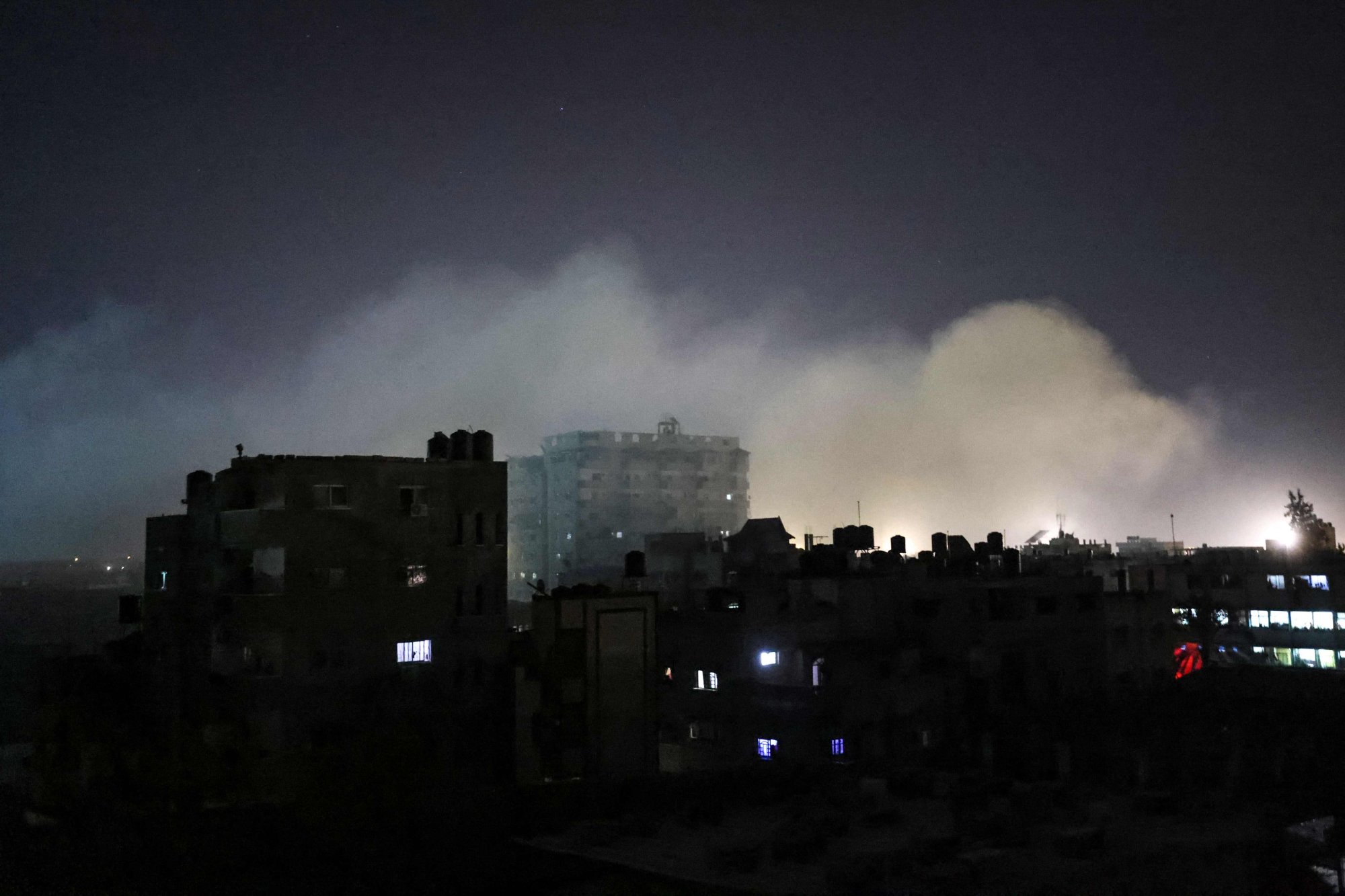US envoys work for hostage release deal, scale-down of Israel-Gaza war, but say no timetable
In an apparent sign that talks on a hostage deal were growing more serious, CIA Director William Burns met in Warsaw with the head of Israel’s Mossad intelligence agency and the prime minister of Qatar, a US official said.
It was the first known meeting of the three since the end of a weeklong ceasefire in late November, during which some 100 hostages – including a number of foreign nationals – were freed in exchange for the release of around 240 Palestinians held in Israeli prisons.
Hamas releases footage of 3 elderly Israeli hostages held in Gaza
National Security Council spokesman John Kirby said the talks were not “at a point where another deal is imminent. We are working literally every day on this”.
Austin, who arrived in Israel with Joint Chiefs Chairman General CQ Brown, said he and Israeli officials exchanged “thoughts on how to transition from high intensity operations” and how to increase the flow of humanitarian aid to Gaza.
American officials have called for targeted operations aimed at killing Hamas leaders, destroying tunnels and rescuing hostages. Those calls came after US President Joe Biden warned last week that Israel is losing international support because of its “indiscriminate bombing”.
Speaking alongside Austin, Gallant said only that “the war will take time”. Last week, Gallant said Israel would continue major combat operations for several more months.
Israeli military spokesman Daniel Hagari said the Israeli chief of staff met Austin and Brown and presented “plans for the continuation of the battle in the coming stages”.
European countries also appear to be losing patience. “Far too many civilians have been killed in Gaza,” EU foreign policy chief Josep Borrell posted on X. “Certainly, we are witnessing an appalling lack of distinction in Israel’s military operation in Gaza.”
Under US pressure, Israel provided more precise evacuation instructions earlier this month as troops moved into the southern city of Khan Younis. Still, casualties have continued to mount and Palestinians say nowhere in Gaza is safe as Israel carries out strikes in all parts of the territory.
Israel reopened its main cargo crossing with Gaza to allow more aid in – also after a request from the US. But the amount is less than half of pre-war imports, even as needs have soared and fighting hinders delivery in many areas. Israel blocked entry off all goods into Gaza soon after the war started and weeks later began allowing a small amount of aid in through Egypt.

The comments were likely made under duress, but the video signalled Hamas wants to move on to discussions of releasing sick and elderly men in captivity. Israel has said it wants around 19 women and two children freed first. Hamas says the women include soldiers, for whom it is expected to demand a higher price in terms of prisoner releases.
Hamas and other militants are still holding an estimated 129 captives. Hamas has said no more hostages will be released until the war ends.
SOS signs found on Gaza hideout of killed Israeli hostages
Elsewhere, Yemen’s Houthi rebels continued attacks on shipping in the Red Sea in a campaign that has prompted a growing list of companies to halt their operations in the major trade route. The latest company was oil and natural gas giant BP, which said on Monday it was suspending shipments through the Red Sea.
Austin said he would hold talks on Tuesday morning with his counterparts in the Middle East and beyond on an international coalition to respond to the attacks. “It is an international problem. That’s why it deserves an international response,” he said.